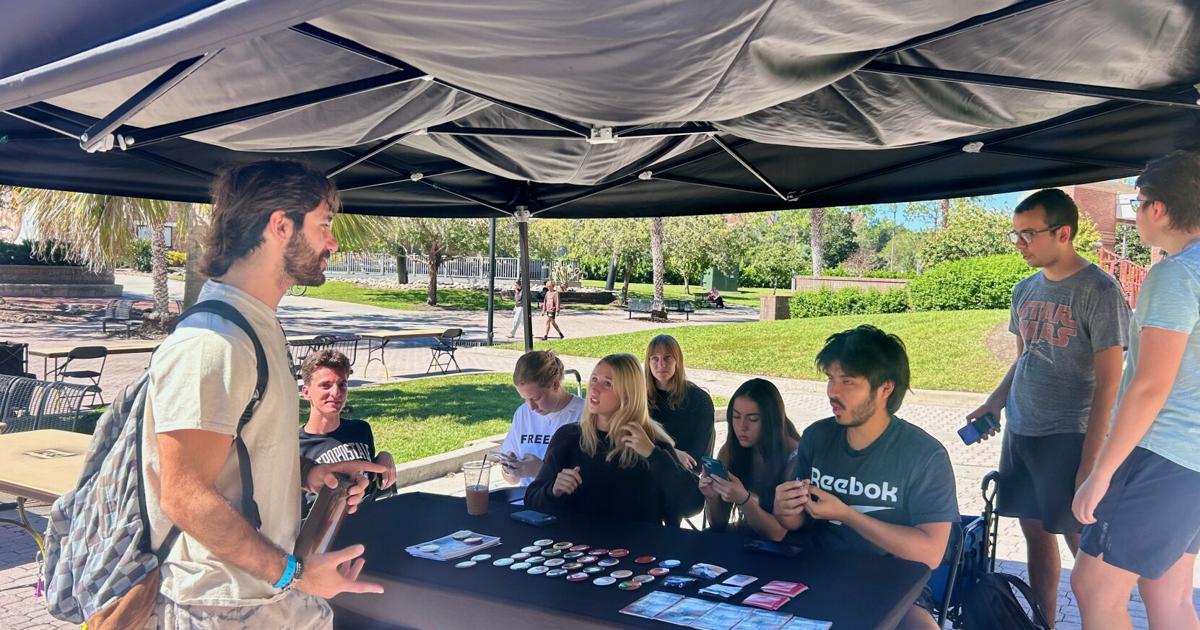A Florida state lawmaker introduced a bill that has since been withdrawn that would have regulated political activity on college campuses, making it a misdemeanor to campaign for or with candidates on school grounds, drawing concern from UCF student political organizations.
Highland Beach Republican Rep. Peggy Gossett-Seidman proposed House Bill 49 on Sept. 26. In its current form, the bill encompasses almost all levels of public education, from elementary school to postgraduate degrees.
“It is about fairness and equality, which the state and federal statutes call for very clearly,” Gossett-Seidman said in an interview with Florida Politics. “When I did a deep dive, I found that this problem is occurring on many campuses throughout the state, and it puts schools in peril of losing funding.”
If passed, HB 49 would ban the posting and distribution of campaign signs and literature at colleges and universities.
“I was a little disquieted, naturally,” said Jake Suggs, a senior political science major and chair for Young Americans for Freedom. “We like to get involved in local politics and campaigning. University campuses are places for free speech and exposing students to different ideas, so to censor that I think would be foolish.”
On-campus campaigning for or with specific candidates, including collecting campaign contributions or hosting voter registration events, would also be prohibited unless all candidates were invited to participate.
“As an organization that is focused on fostering civic participation among college students, we firmly stand against House Bill 49,” said Audrey Hopper, director of political affairs for UCF Democrats. “Young people need to have a voice and learn how to be politically active. Student organizations like ours help students find their voice. This bill would limit students’ ability to learn how to be politically active people.”
According to an April 2022 Florida state summary report by the ALL IN Campus Democracy Challenge, the average student voter registration rate at ALL IN Florida campuses for the 2020 election was 85.5%.
“A lot of students may not be interested in politics or know anything about politics. So, to see politically active students on campus gives students exposure to these ideas in these platforms,” Suggs said. “If you stifle that, you’re going to be doing students a massive disservice.”
The measure would also bar faculty and staff from using their school emails or working hours for political advocacy. This is a restriction that largely mirrors existing state law and university policy, but it adds the potential for criminal penalties. UCF, under policy 2-600.2, prohibits employees from engaging in political activity during work hours or using university resources for campaign purposes.
“I thought that the university would not be able to hold a campaign event for a candidate, but some of it seems like it might be unconstitutional,” said Dr. Aubrey Jewett, political science professor. “If the candidate wants to come and put up signs and pass out literature, I don’t think they can be stopped. It’s a public setting.”
Under HB 49, violating any of these terms would be a second-degree misdemeanor, punishable by up to 60 days in jail and a fine of up to $500. Each violation of the detailed restrictions would count as a separate offense.
The bill was filed on Sept. 26, but was withdrawn before introduction on Oct. 3. This is the second time Gossett-Seidman has proposed a similar measure. She and Fort Myers Republican Sen. Johnathan Martin filed Senate Bill 1250 and House Bill 1233 during the 2025 Legislative Session, but both bills died without a hearing.
“If it passed, it would probably at least in some instances chill free speech and have less speech than we have today,” Jewett said. “People would be worried they’d run afoul of this new law for inviting people or saying things in favor of or against a candidate.”
By curbing political activity on campus, HB 49 could change how students and professors alike interact with democracy outside the classroom.
“The part that says that the university and professors you know can’t take sides, to my knowledge, has always been the case, but we have had a lot of different candidates come to UCF in my 30 years here,” Jewett said. “In my Florida politics class, I’ve had, over the years, a couple of people come speak to my class who were running for office. But, I think I’d be less willing to do that if I thought I might get in trouble.”

